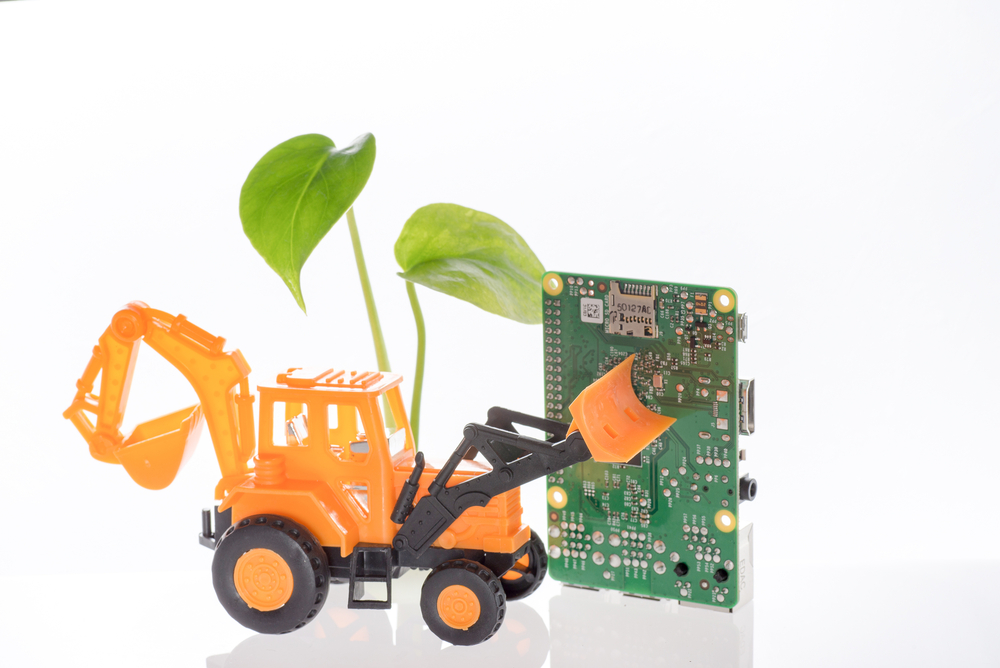I interviewed a lot of farmers in my years as a business reporter. For obvious reasons, you’ll never find a more practical-minded bunch of people. One wrong bet can kill a grower’s bottom line.
So when it comes to technology, they all have the same attitude: Prove that it’s worth the investment of time and money.
But once they have proof something really works, farmers can be the earliest of tech-savvy “early adopters.”
They adopted GPS years before consumers did to digitally map their fields, and automatic guided steering was an upgrade on tractors and harvesters years before Tesla unveiled its “autopilot” feature.
And today?
Farmers’ choices are worth paying close attention to once again — because they’re embracing two of the biggest themes we talk about here at The Sovereign Society…
The first of those themes is the Internet of Things (IoT) — something Paul writes about all the time. His subscribers have seen nice gains in his recommendations.
Planting the IoT Seeds
There may be no industry better suited for the IoT than agriculture, because every farm varies just a little from its next-door neighbor. Soil fertility, elevation, ground slope, moisture content — the list goes on and on — all make a difference.
If you could collect data on all that stuff, it might make the difference between getting a bumper crop or an average crop out of your fields.
Not surprisingly, the big agriculture companies all smell opportunity in the wind. That’s why….
- Monsanto has been on acquisition spree in recent years, snapping up data and sensor companies like Climate Corp. (2013) and Vitalfields (2016) — not to mention that Germany’s Bayer is seeking to acquire Monsanto itself in a record $66 billion offer made earlier this year.
- John Deere bought Europe’s Monosem. Towed behind a tractor, a Monosem planter uses an array of sensors to place each individual seed at just the right soil depth with just the right dose of fertilizer for maximum growth.
- Trimble, best known for its GPS mapping devices, is building a large footprint in “farm tech” through a series of acquisitions (and dropped its old corporate name, Trimble Navigation, earlier this year).
But with all those machines rumbling about the fields, they’re also collecting reams of valuable data in the process.
The Most Valuable Commodity of All
As longtime Sovereign Society readers will know, Ted Bauman has warned us about the importance of data privacy for years.
But this is a relatively new question for farmers when it comes to their data and the IoT.
Who gets access? And who potentially stands to make profits from all that very detailed information?
As one example, John Deere makes no bones about the value of farm data. It was a key piece of the company’s stated goal back in 2011: to double its sales to $50 billion by 2018.
But farmers, not surprisingly, have other ideas.
The concern about data privacy has spawned a small but growing effort at creating open-sourced DIY “ag tech” products — so farmers aren’t held hostage to the protocols of the major farm equipment makers.
And a private agriculture startup by the name of Farmobile looks to take that idea a step further. The company, which has been profiled by The Wall Street Journal, makes a data-recording device that plugs into a tractor’s onboard computer system. (It also works with other sensor-laden farm equipment like planters and harvesters.)
More recently, the company launched a “data store” so farmers (only in Minnesota, so far) can literally get paid the value of the bits and bytes generated by their farm equipment.
The upshot is this: The company splits the revenue from the sale of a farm’s data evenly with an individual farmer and guarantees $2 per acre. It may not sound like much, but when you consider that the average Midwest farm is roughly 1,000 acres (and farmers often lease even more), the dollar figures add up to a tidy sum.
It shows, in a literal sense, the value of information in the digital farming age.
Regards,
JL Yastine
Editorial Director, The Sovereign Society
